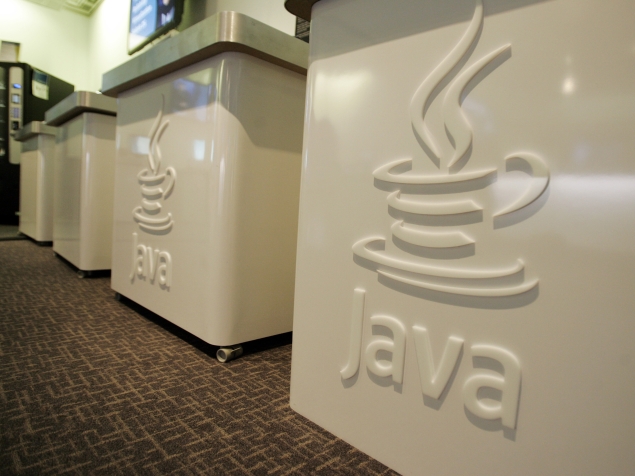- Home
- Laptops
- Laptops News
- Apple blocks Java on Macs due to vulnerabilities
Apple blocks Java on Macs due to vulnerabilities

Java allows programmers to write a wide variety of Internet applications and other software programs and run them on most computers, including Apple Inc.'s Mac. However, earlier this month the U.S. Department of Homeland Security recommended disabling Java in Web browsers to avoid potential hacking attacks. Oracle Corp., which owns Java, has issued updates that fix known vulnerabilities, but the DHS expects that there are more flaws in Java's coding.
Apple sends out virtual "blacklists" to Internet-connected Macs, instructing them not to run certain programs. Apple is blocking the latest version of Java from running on the most recent versions of its Mac operating system, and blocking an older version, Java 6, from running on the older version of its Mac system, called Snow Leopard. The blocks affect programs and online games that use Java in Web browsers.
Oracle had no immediate comment on Apple's action.
Among those Java users inconvenienced by the unannounced block was the photo department of The Associated Press, which relies on a Java application to manage and distribute photos.
"The situation caught us by surprise and a number of our machines could not operate for a time, but we had enough capability to work around the problem in the meantime," said AP spokesman Paul Colford. "We expect the affected machines to be operating by day's end."
Get your daily dose of tech news, reviews, and insights, in under 80 characters on Gadgets 360 Turbo. Connect with fellow tech lovers on our Forum. Follow us on X, Facebook, WhatsApp, Threads and Google News for instant updates. Catch all the action on our YouTube channel.
Related Stories
- Samsung Galaxy Unpacked 2025
- ChatGPT
- Redmi Note 14 Pro+
- iPhone 16
- Apple Vision Pro
- Oneplus 12
- OnePlus Nord CE 3 Lite 5G
- iPhone 13
- Xiaomi 14 Pro
- Oppo Find N3
- Tecno Spark Go (2023)
- Realme V30
- Best Phones Under 25000
- Samsung Galaxy S24 Series
- Cryptocurrency
- iQoo 12
- Samsung Galaxy S24 Ultra
- Giottus
- Samsung Galaxy Z Flip 5
- Apple 'Scary Fast'
- Housefull 5
- GoPro Hero 12 Black Review
- Invincible Season 2
- JioGlass
- HD Ready TV
- Laptop Under 50000
- Smartwatch Under 10000
- Latest Mobile Phones
- Compare Phones
- OPPO A6v 5G
- OPPO A6i+ 5G
- Realme 16 5G
- Redmi Turbo 5
- Redmi Turbo 5 Max
- Moto G77
- Moto G67
- Realme P4 Power 5G
- HP HyperX Omen 15
- Acer Chromebook 311 (2026)
- Lenovo Idea Tab Plus
- Realme Pad 3
- HMD Watch P1
- HMD Watch X1
- Haier H5E Series
- Acerpure Nitro Z Series 100-inch QLED TV
- Asus ROG Ally
- Nintendo Switch Lite
- Haier 1.6 Ton 5 Star Inverter Split AC (HSU19G-MZAID5BN-INV)
- Haier 1.6 Ton 5 Star Inverter Split AC (HSU19G-MZAIM5BN-INV)

















